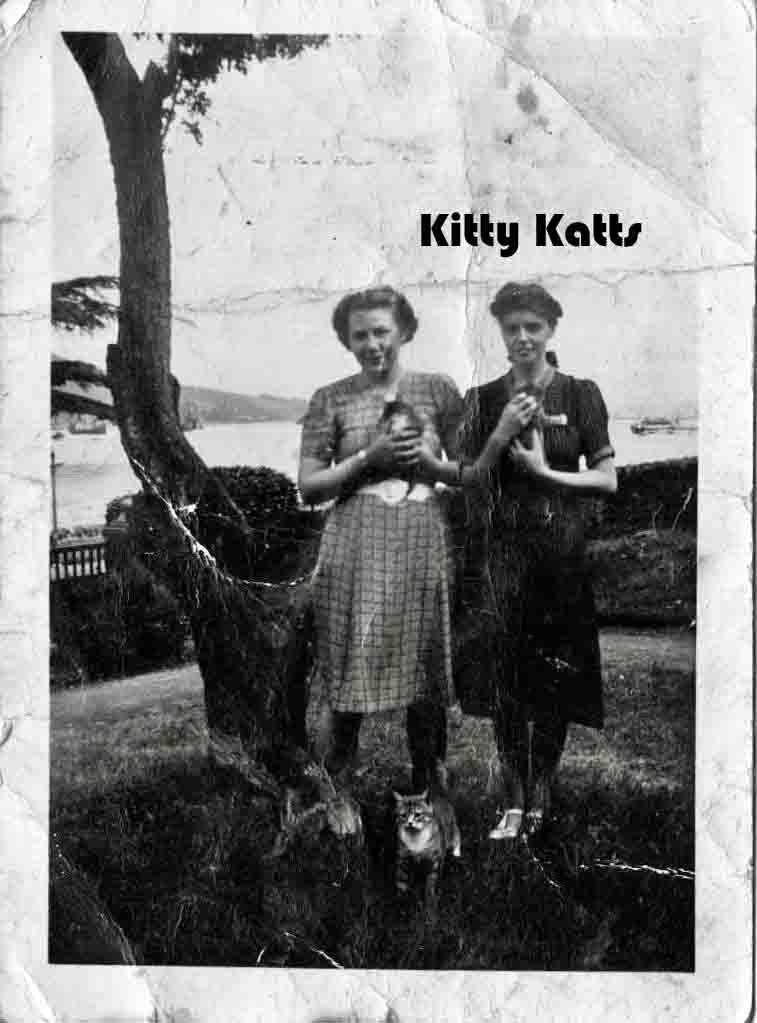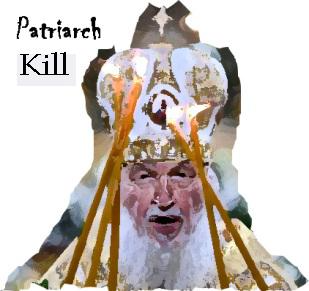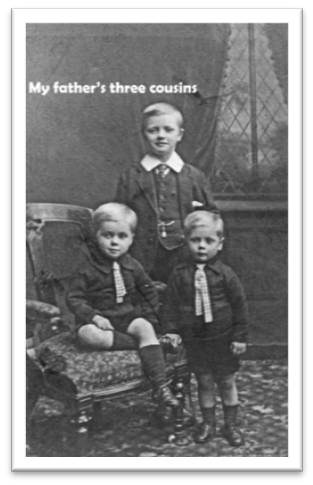The photo above shows my mother with her friend at Woodbank, Dunoon. I don’t know much about Janet, but she wrote two or three letters to my mother during the war (which I have in my ‘archive’).59 My mother lived, as a lodger, at Woodbank, Dunoon, just after her marriage in 1940/1941. The photo shows my mother and Janet holding kittens – one of which was perhaps ‘Poppy’ who was our family cat. The other kitten is perhaps ‘Jonah’ who also accompanied my mother to her cottage at Mardrumho.60
My mother had more than one ‘Poppy’ it seems (in Billericay, Essex; Scotland and Wales). This ‘Poppy’ was perhaps the same Poppy that lived together with us in Culcheth, Lancashire. ‘Jonah’ by this time had disappeared. He was a randy old cat who disappeared for days on end, much like my father. Perhaps he went on a nightly fling and never returned for one reason or anotpher – my mother described him as a ‘bad penny that turned up again’. But It seems he ceased to ‘turn up’, unlike my father, who although ‘absent’ for many years turned up again.
Ironically, I don’t think she even liked ‘pets’, but it was part of being a family in the post-war period – in much the same way as British monarchs and US presidents like to have family photoshoots with ‘pets’. Everyone has seen pictures of Queen Elisabeth with her corgis!
Janet’s letter:
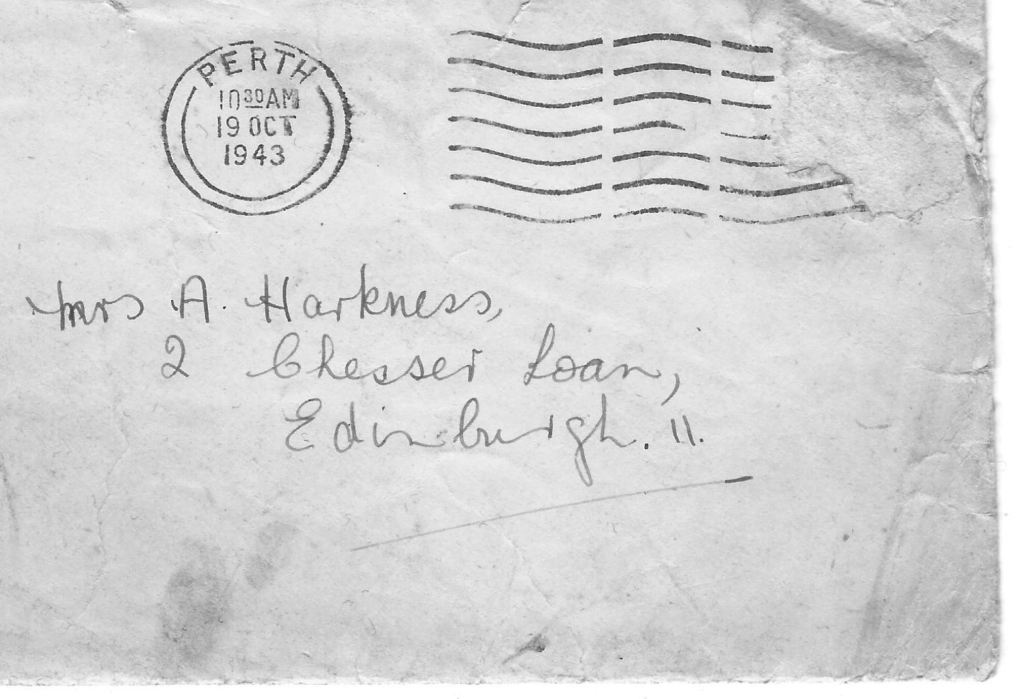
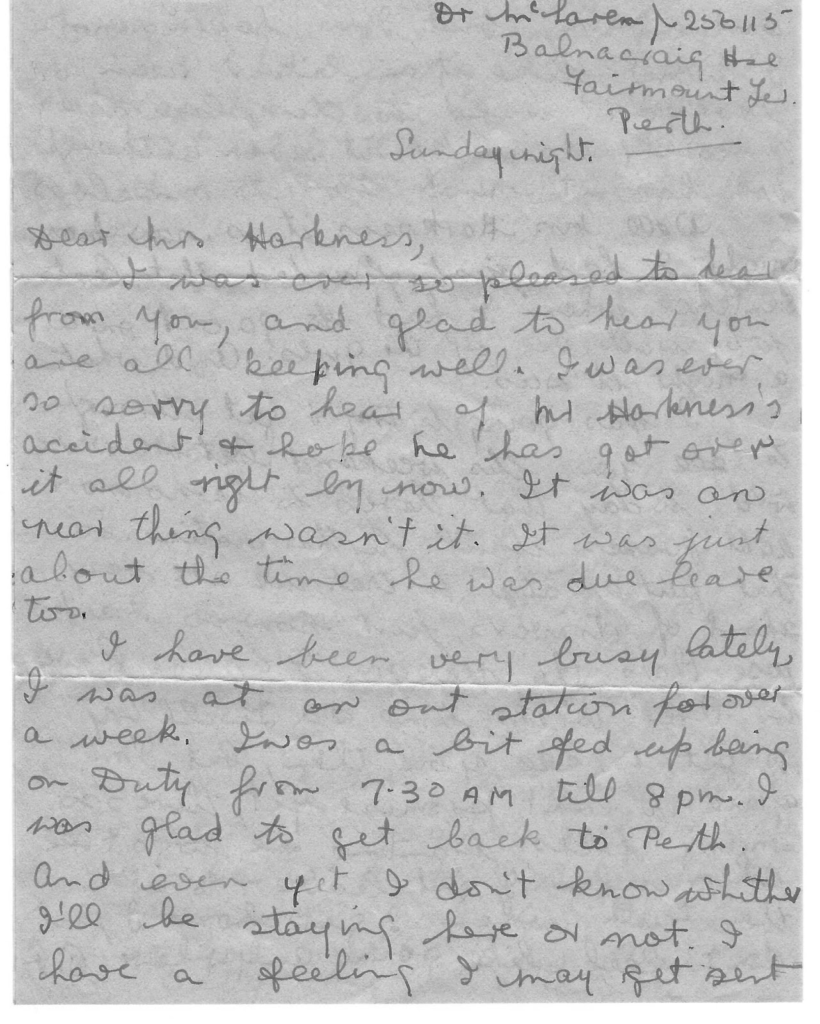
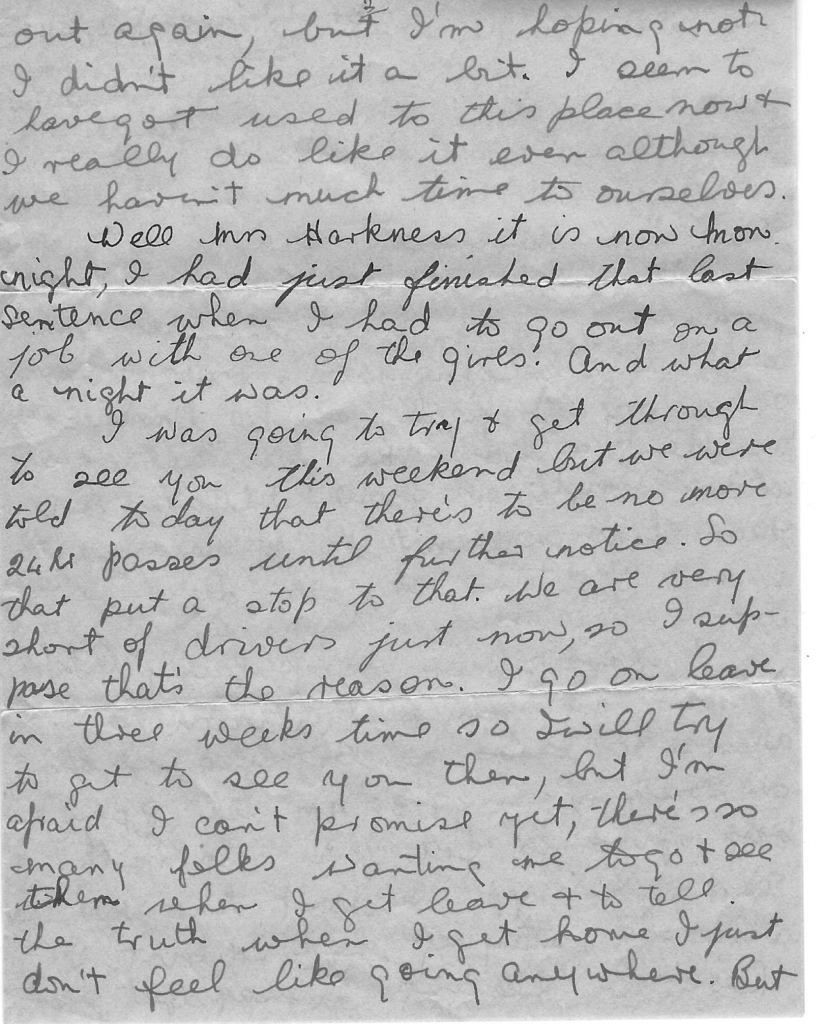
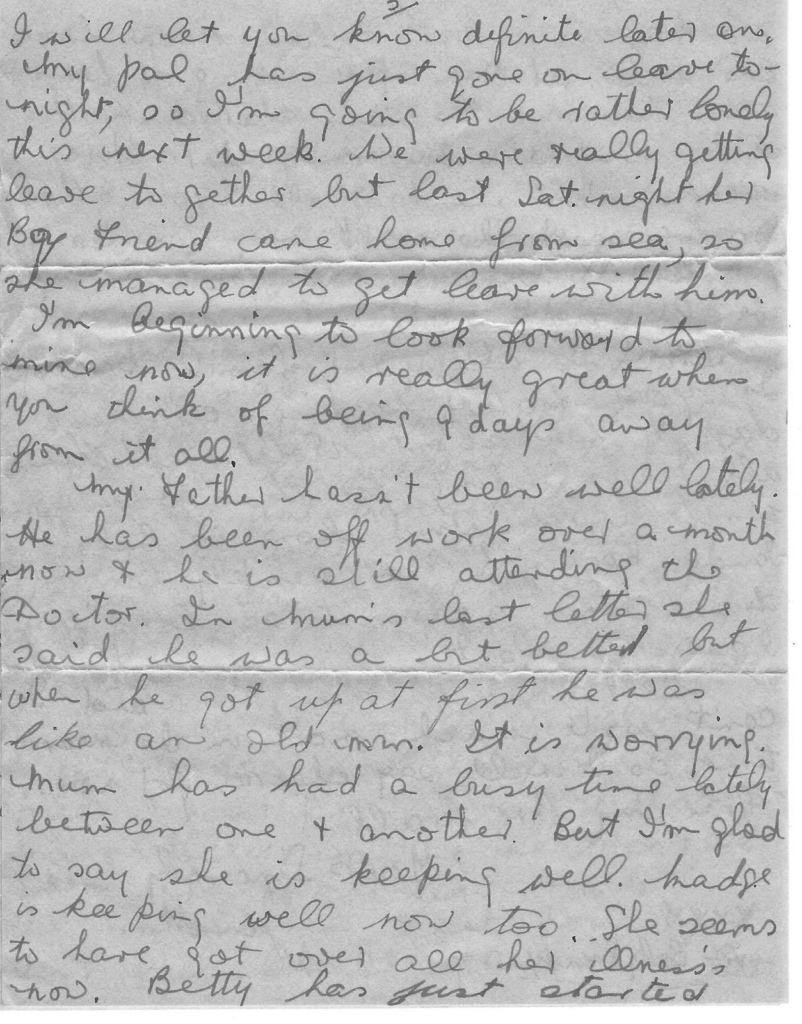
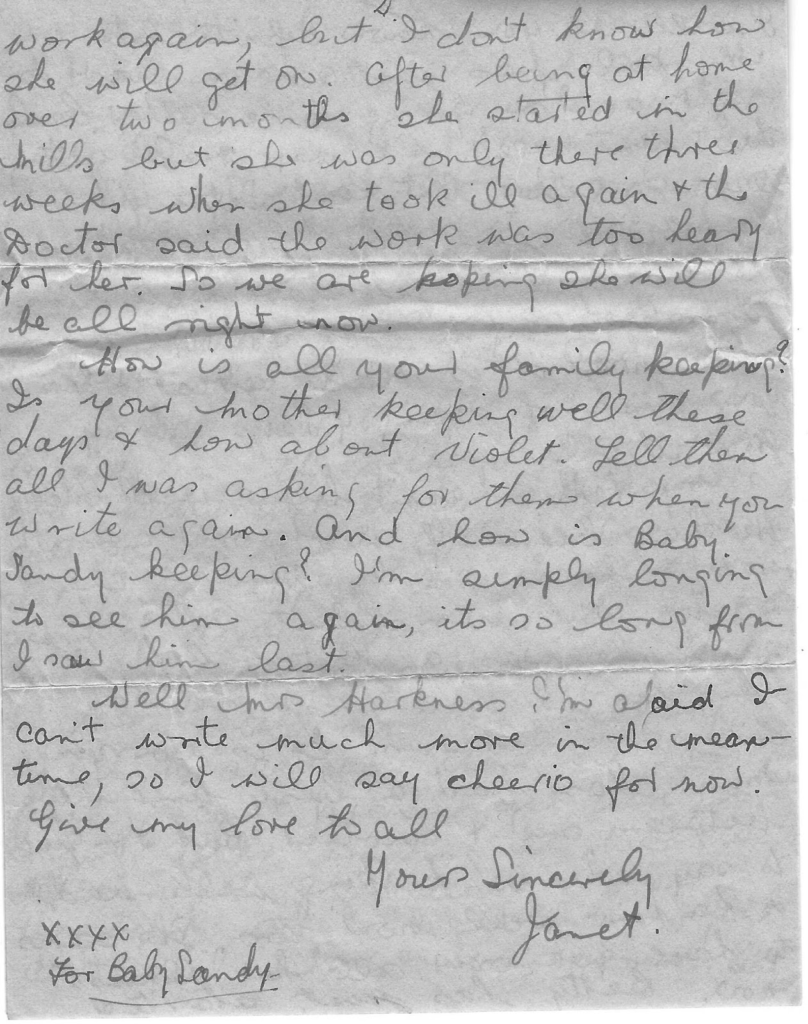
Comment on Janet’s letter
I don’t intend to say much about Janet except on some small points. I will include her letter here as an important primary source, for both our family history, as well as people’s lives during World War II. In relation to ‘family history’, Janet’s letter is on the periphery. On the other hand it is at the centre of events in the context of WWII!!
During the war, Janet seems to have worked as a driver like Princess Elisabeth. Moreover, she comments that it is difficult to obtain leave. We can contrast her with my mother. Before my mother met my father, she was occupied with ‘war service’ in that she worked at the Highlanders’ Institute in Glasgow that billeted soldiers.
Women at War
During the war, women did men’s jobs. They were treated as the ‘equals’ of men. After the war, things went back to ‘normal’, and they were discriminated in the labour market.
“During the Second World War, women proved that they could do “men’s” work, and do it well. With men away to serve in the military and demands for war material increasing, manufacturing jobs opened up to women and upped their earning power. Yet women’s employment was only encouraged as long as the war was on.”61
During, and prior to, World War II, women in Germany who conceived and raised at least four or more children in the role of a parent were awarded ‘The Cross of Honour of the German Mother.’62 In other words, they were rewarded for providing the state with ‘cannon fodder’.
In modern-day Russia, women want to avoid their children becoming ‘cannon fodder’63 in Russian wars. This means having to leave the country to give birth to their children.64 Ironically, had Germany occupied Britain in World War II, my mother might have been awarded such a medal by the Nazi German government, as she gave birth to five sons (who fortunately never became ‘cannon fodder’ [as of 2023]).
But concerning the question: What choices did women have during World War II? They could take over men’s jobs such as driving ambulances or working in the munitions industry. They could also marry a soldier.
Reading Janet’s letter, I would say that my mother had more ‘freedom’ being a ‘housewife’; although this is not to say she had an easy life. Her letter also mentions ‘Betty’, a friend of my mother’s at the Highlanders’ Institute, but I can’t quite see the connection.
Sources
59 As mentioned elsewhere, these letters (“WWII Love Letters”) will be posted on: https://macgillivray-culloden.com/
60 Where they lived together with ‘Buster the dog’ which, according to my brother Gavin belonged to my mother’s sister, Violet.
62 https://en.wikipedia.org/wiki/Cross_of_Honour_of_the_German_Mother
63 Soldiers regarded merely as material to be expended in war.
64 BUENOS AIRES—Thousands of pregnant Russian women and their partners have been migrating to Argentina since President V*adimir P*tin ordered the invasion of Ukraine, inspired by the hope of building new lives far from his autocratic and increasingly isolated nation. https://www.wsj.com/articles/russian-women-flock-to-argentina-to-give-birth-b6e65569
